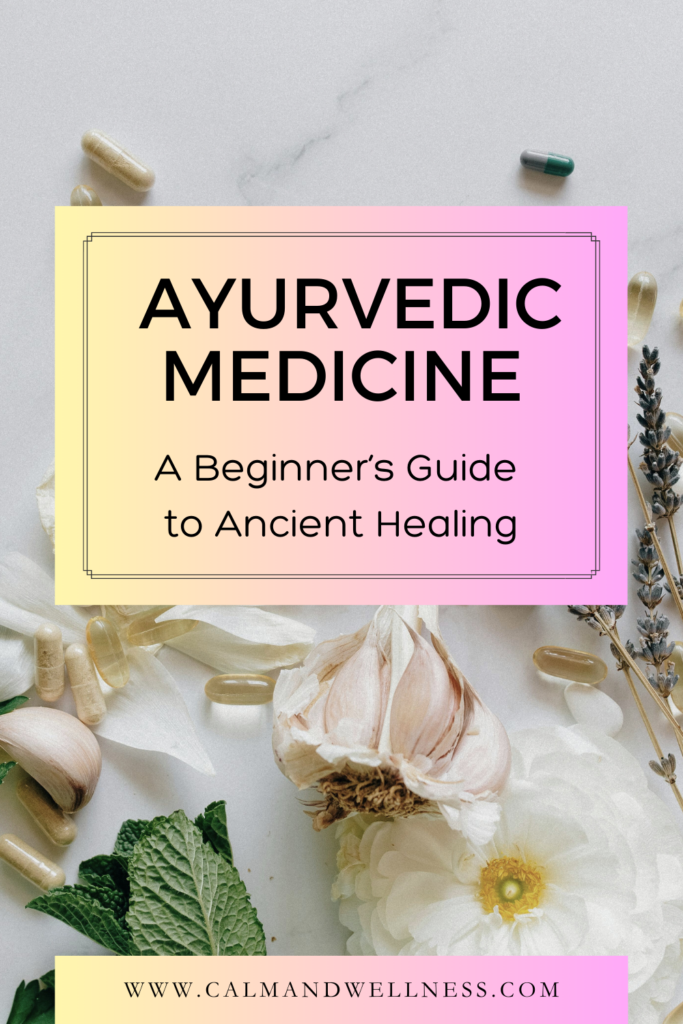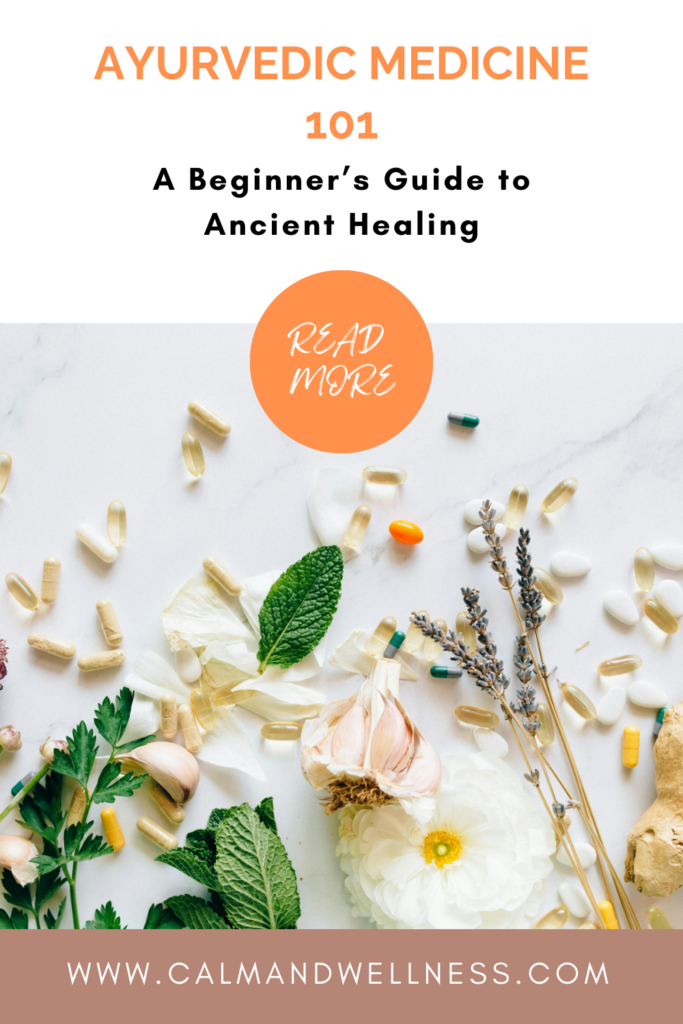What is Ayurvedic Medicine ? Ancient Wisdom for Modern Wellness


This site contains affiliate links, view the disclosure for more information.
In the bustling world of modern healthcare, an ancient healing system continues to captivate millions: Ayurvedic medicine.
This holistic health approach, which originated over 3,000 years ago in India, offers more than just treatment, it provides a profound philosophy of wellness that feels as relevant today as it did centuries ago.
1. The Foundations of Ayurvedic Medicine
Ayurveda, meaning “science of life” in Sanskrit, is more than just a healthcare system—it’s a way of living. The word “Ayurveda” combines “Ayur” (life) and “Veda” (knowledge or science), making its literal translation “the science of life.” How poetic is that?
This ancient practice traces its roots back to the sacred Vedas, particularly the Atharva Veda, which brims with detailed medical practices and life guidance.
These texts weren’t just about medicine; they were blueprints for living in harmony—with nature, with others, and with ourselves. Unlike modern medicine, which often zeroes in on symptoms, Ayurveda digs deep to address the root causes of imbalance.
2. Fundamental Principles

Ayurveda isn’t just another medical system; it’s a philosophy. Here are its cornerstones:
✅ Personalized Healthcare: Forget one-size-fits-all—Ayurveda celebrates your uniqueness.
✅ Prevention Over Cure: Why wait for illness? Ayurveda emphasizes preventing problems before they arise.
✅ Holistic Wellness: Physical, mental, emotional, and spiritual health—it’s all connected.
3. The Three Doshas: Your Personal Health Blueprint
At the heart of Ayurvedic medicine lies the concept of doshas: Vata, Pitta, and Kapha.
Doshas are the three fundamental energies or bio-elements that govern every individual’s physical, mental, and emotional health.
These energies are derived from the five elements of nature (space, air, fire, water, and earth) and each dosha represents a unique combination of these elements influencing different physiological and psychological traits.
Think of them as your personal energy blueprint.
Vata Dosha
- Elements: Air and space
- Traits: Governs movement, circulation, and the nervous system
- When Balanced: Creative, energetic, adaptable
- When Imbalanced: Anxiety, dry skin, digestive issues
Pitta Dosha
- Elements: fire and water
- Traits: controls metabolism, transformation, and digestion
- When Balanced: intelligent, focused, passionate
- When Imbalanced: inflammation, anger, skin problems
Kapha Dosha
- Elements: earth and water
- Traits: manages structure, lubrication, and stability
- When Balanced: calm, loving, patient
- When Imbalanced: Weight gain, lethargy, respiratory issues
4. Key Practices and Treatments

Ayurveda isn’t about quick fixes. It’s about nurturing balance through:
Herbal Interventions
- Turmeric: for inflammation
- Ashwagandha: to combat stress and improve sleep. This adaptogen that lowers cortisol and helps the body manage stress
- Triphala: for digestion, it’s gentle detoxifier known to improve gut health
- Brahmi: to boost brainpower, shown to enhance memory and cognitive function
Dietary Recommendations
- Avoid incompatible foods (e.g., milk with sour fruits).
- Adjust meals seasonally (light in summer, hearty in winter).
- Practice mindful eating—slow down and savor.
Detoxification
- Panchakarma: A five-step cleansing ritual that includes oil massages and herbal steam baths.
Lifestyle Interventions
- Yoga and Meditation: Daily practices to enhance well-being.
- Sleep Hygiene: Consistent sleep routines for restoration.
- Stress Management: Techniques like Pranayama (breathwork) to calm the mind.
5. Implementing Ayurvedic Medicine Principles in Daily Life

The beauty of Ayurveda is its simplicity. Small changes can have a big impact:
- Morning Rituals:
- Start with warm water and lemon to cleanse your system.
- Try tongue scraping to improve taste perception and remove toxins.
- Mindful Eating:
- Eat seasonal, fresh foods that suit your dosha.
- Avoid skipping meals or overeating.
- Daily Movement:
- Gentle yoga or stretching keeps the body limber.
- Post-meal walks aid digestion.
- Evening Calm:
- Unwind with warm milk spiced with turmeric.
- Power down screens an hour before bedtime for deeper sleep.
Interesting Facts About Ayurveda
- Global Reach: Ayurveda is recognized by the World Health Organization (WHO)
- Timeless Wisdom: it’s the oldest continuously practiced healthcare system in the world
6. The Takeaway On Ayurvedic Medicine
Ayurvedic medicine offers more than health advice—it provides a holistic roadmap to balanced living. By understanding your dosha and embracing simple changes, you can unlock a healthier, more harmonious life.
Curious to dive deeper? Consider consulting an Ayurvedic practitioner who can tailor this ancient wisdom to your modern life. The journey to wellness begins with one step—and Ayurveda might just be the path you’ve been searching for.
The content on Calm & Wellness is for informational purposes only and is not intended as medical advice, diagnosis, or treatment, always consult with a qualified healthcare professional
RELATED POSTS





19 Natural Ingredients for Hair Care That Actually Work (And Why You’ll Never Go Back)
Okay, real talk. If you’ve ever stared at the back of a shampoo bottle and felt like you needed a chemistry degree to understand it… you’re not alone. Between the sulfates, parabens, and mystery “fragrance”…
















